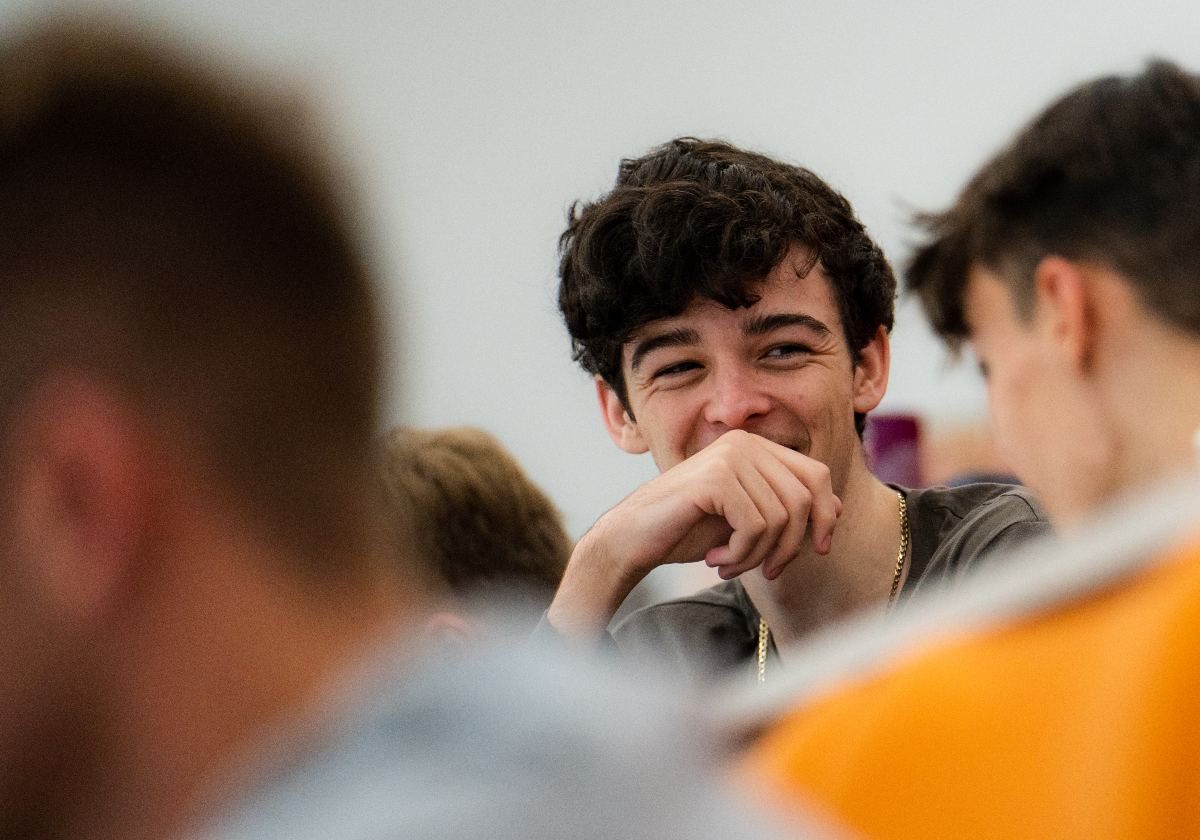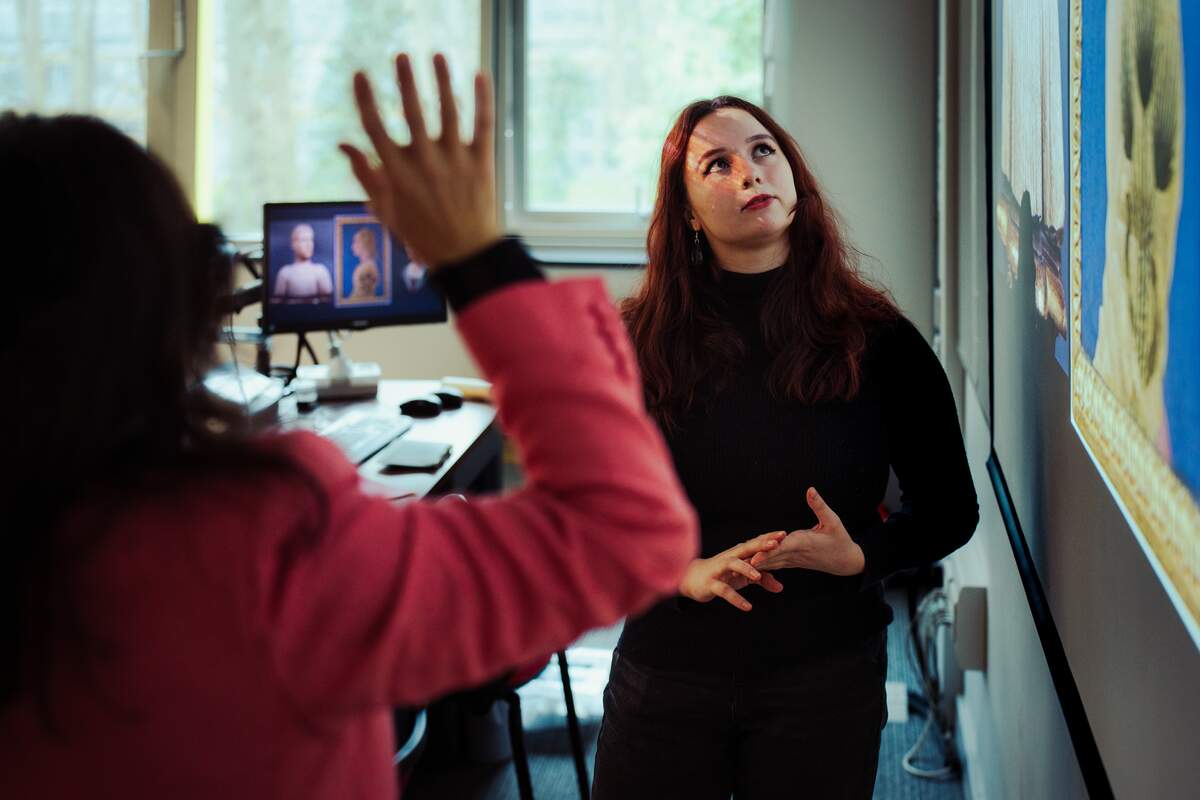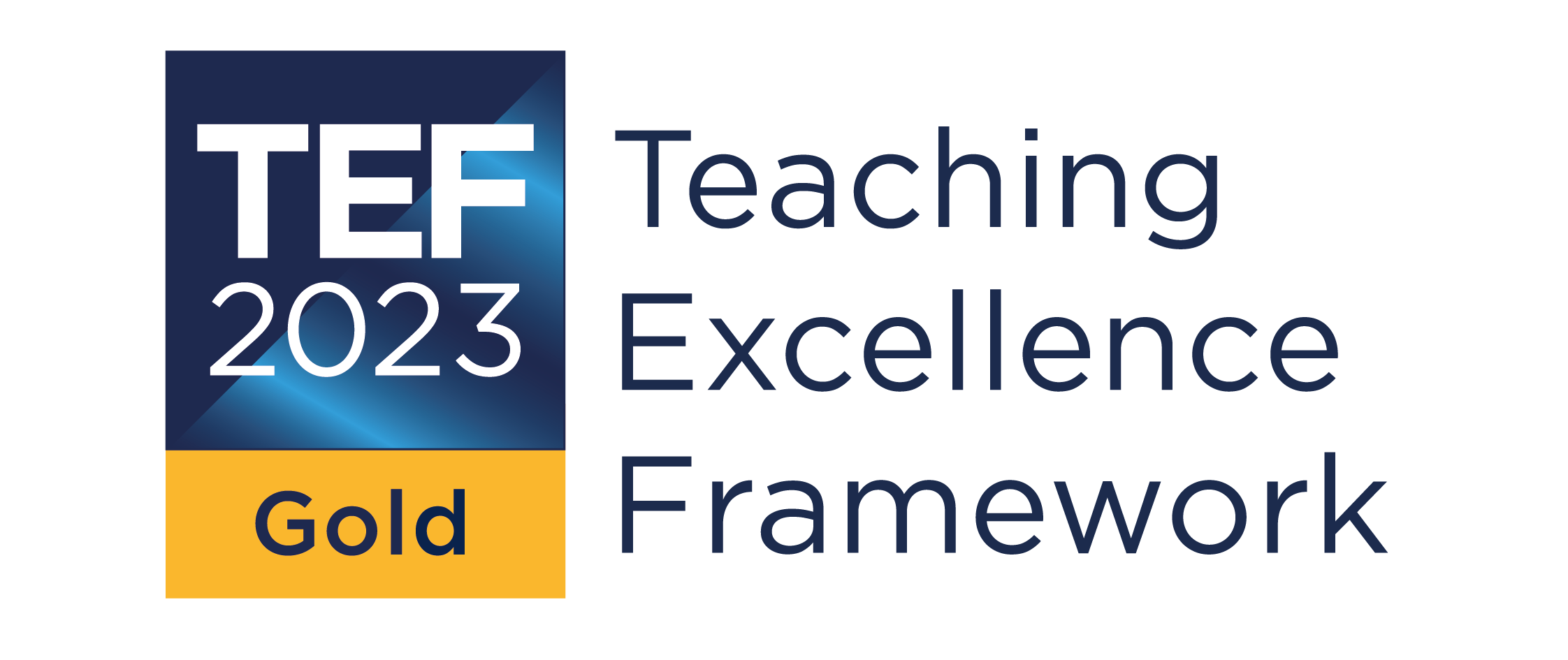
About the University
Independent minds. Collective spirit. All for the public good.
Who we are
We exist as a University for Public Good. Our founding values of excellence, equality and opportunity for all are as true today as they were when we opened our doors to 230 students in 1963.
Today we're home to more than 20,000 students and 5,000 staff. Our diverse community fosters a sense of belonging and operates at the highest academic and ethical standards.
In times of uncertainty and global unrest, the achievements of our staff and students continue to inspire us and have a positive impact on local, national and global scales.
What does public good mean in practice? Rebecca Clark, Head of Access and Outreach, shares the vision behind The Place and its mission to support less advantaged children living in Westfield in York. Explore our Strategy Stories.
40+Schools, departments and centres
20,000+students
£555mtotal income
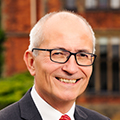
This University was built on distinctive values that have stood the test of time. They continue to guide us today. Our work was always to ‘contribute to the amelioration of human life and conditions.’ That’s a powerful sense of purpose. We now summarise this in a simple phrase: the University of York exists for public good.
Charlie Jeffery, Vice-Chancellor and President
Award-winning education that empowers
A member of the Russell Group, we are a dynamic, research-intensive university.
Our teaching, learning and student experience is outstanding, recognised by a Gold rating from the Office for Students in the 2023 Teaching Excellence Framework.
We nurture our highly talented students from all backgrounds by giving them opportunities to develop and grow in an ever-changing world. Our innovative employability development programmes support our students’ career ambitions and help them meet the needs of global employers.
Our three faculties and 40+ academic departments, schools and centres undertake groundbreaking research that underpins our teaching.
Hull York Medical School student, Phoebe Durojaiye, explores how students can get involved with the University Strategy 2030. Explore our Strategy Stories.
Research with impact
From climate change to artificial intelligence, the University of York tackles some of the most pressing environmental, social and economic challenges facing our rapidly changing world.
Our action-oriented and interdisciplinary research places us in the top 10 institutions in the UK, according to the Times Higher Education (THE) ranking of the latest REF. All of York’s subject areas are now ranked in the top 30 in the UK for research, with strong performance across our three faculties.
Through BioYorkshire, we’re working with partners to make North Yorkshire the first carbon negative region in the UK. We've made a new home for essential research into mental health with the launch of the Institute of Mental Health Research at York. The Institute for Safe Autonomy, our new £45m centre, puts us at the forefront of research into safe robotics and autonomous systems.
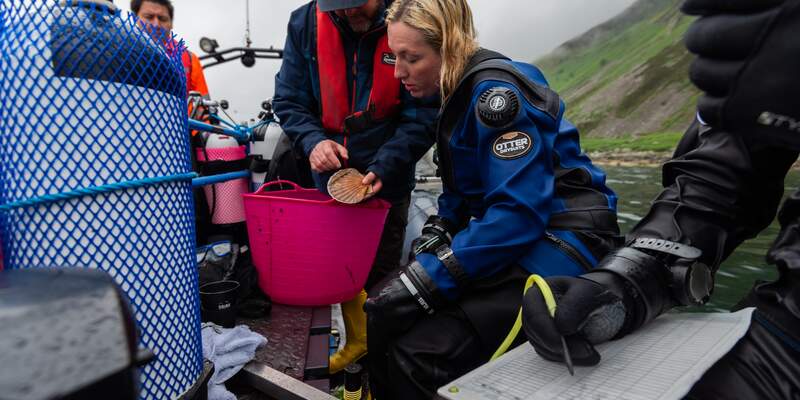
We're helping grow our region as a centre of excellence in the creative industries through the Digital Creativity Institute and CoSTAR Live Lab.
In 2024/25, we achieved a new record of £107 million in group research income, continuing the strong growth that saw us surpass the £100m milestone for the first time only a year prior. Our Research Strategy 2023–2030 lays out how we continue to advance knowledge for the public good
We're nurturing a thriving research culture and community where diverse people, ideas, and approaches continue to flourish. This community includes everyone involved in research and knowledge exchange, from students and academic staff to technicians and professional support.
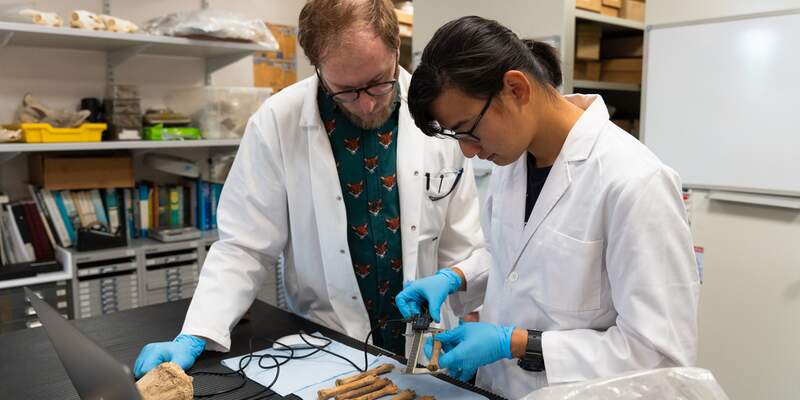
Local impact, global reach
By building strong partnerships with international institutions and fostering collaboration across disciplinary boundaries, we extend the reach of our teaching and research, creating local impact on a global scale. By working closely with communities locally and worldwide, we exchange knowledge and cultural insights, track societal shifts, and deliver effective solutions to address economic and global pressures.
We pursue transformative research partnerships and learning opportunities across the world, including a campus in Mumbai in India, a strategic relationship with Maastricht University and our Europe Campus in Thessaloniki, Greece.
We’ve established three new learning centres to help thousands of children growing up in East Hull, Bridlington and Grimsby stay on track at school and realise futures they may never have dreamed possible through our partnership with IntoUniversity and the University of Hull.
Whether supporting local businesses or collaborating on a global scale, our partnerships make a difference.
Using our research and expertise, we also help industry and businesses on projects of all sizes and complexity, helping unlock innovation and boost productivity.
Enterprise Works, our business hub, is where we nurture enterprising talent and foster connections between local businesses, students and researchers. Encouraging entrepreneurial activity in our region drives social change and delivers benefits from our expertise for the public good.
Bob Doherty, Principal Investigator of FixOurFood and former Dean of the School for Business and Society, discusses our mission for public good. Explore our Strategy Stories.
Our campus community
York is a campus university set within 500 acres of landscaped green spaces, lakes and wetlands and is located within walking distance of the city centre. The campus spans two areas, Campus West and Campus East, connected via a short walk. Academic departments, colleges and facilities are spread across both areas of campus.
Our campus is home to an abundance of water birds, including ducks, geese, swans and herons. Wander around and you’ll find many fascinating highlights and hidden gems, including our scale-model Solar System trail and a statue of Long Boi, our beloved duck who charmed the University from 2018 to 2023.
All York students become members of one of our eleven colleges, which provide an inclusive and supportive community.
Explore campus:
- Our campus
- Campus investment
- Guides to campus for people with accessibility needs
- Colleges
- Student life at York
- Solar System trail
- Long Boi
Our community and values:
- Together York: Our community declaration and shared goals.
- Respect at York: Our commitment to a safe and fair campus.
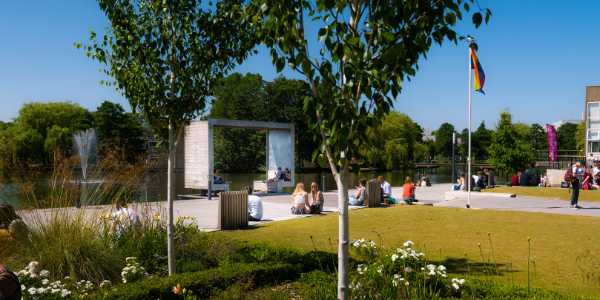
Greg's Place on Campus West by the lake.

One thing you’ll find about York is there’s always an event or festival on in the city. A personal highlight for me is the York Chocolate Festival at Easter, it’s the perfect way to wrap things up before the semester break!
A beautiful city to call home
York is a thriving, friendly city, renowned for its rich history and heritage.
Regularly named one of the best places to live and visit in the UK, 2,000-year-old York has so much to offer, from iconic medieval streets to a thriving foodie scene and many more attractions.
Travel between campus and the city centre is easy by bus, bike or on foot. York is a great base from which to explore the wider region and beyond. Our central location means you can reach major UK cities in record time:
- London and Leeds: Under 2 hours (and just 40 minutes to Leeds)
- Manchester and Edinburgh: Under 2.5 hours
- Birmingham: 2 hours 30 minutes

Sustainability
Environmental sustainability is one of our core principles and we're embedding sustainable thinking across all areas of the University. Researchers at York collaborate across disciplines to help shape a more sustainable future for all of us, addressing unprecedented global challenges in environmental, social and economic sustainability.
Environmental Sustainability at York (ESAY) boosts our environmental sustainability activity and develops pathways to help us achieve carbon neutrality by 2030. Our award-winning York Interdisciplinary Modules (YIMs) equip students to work collaboratively in multidisciplinary teams to solve local, regional and global sustainability challenges.
As a University for public good, we continue to consider the ways our actions can affect positive and lasting change. In 2024, we published our latest statement on responsible investment - outlining our divestment from several areas that threaten global sustainability.
How we're governed and led
The University was created by Royal Charter and is a public higher education institution and exempt charity in England.
- Dr Heather Melville, OBE is Chancellor, the ceremonial head of the University.
- Dr Alice Maynard is the Chair of Council, the governing body and trustee board with statutory and strategic oversight of the University.
- Professor Charlie Jeffery is Vice-Chancellor and President, the chief academic and executive officer responsible for leadership of the University, and Chair of the University Executive Board.
Latest news from the University

The introduction of mandatory photo ID in the 2024 general election may not have provided the security boost promised by the government, new research suggests.

A new report has set out how the UK might respond to major disruptions to food supplies triggered by events such as war, extreme weather, or cyber-attacks, and what can be done now to prevent such disruptions from escalating into a crisis.

The University of York has become the first Russell Group institution to sign a strategic agreement with the National Indian Students and Alumni Union UK (NISAU).

An exhibition exploring how women’s fashion reflected profound social change in the early twentieth century has opened at the University of York.

